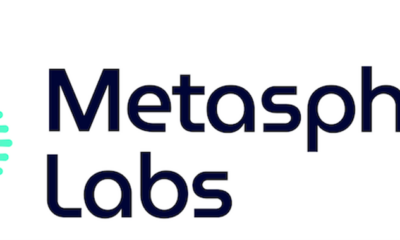Tech
JD Vance Likes Lina Khan and Crypto, Hates ‘Big Tech’

In February, about a hundred people gathered at Bloomberg’s Washington, D.C., office for a conference hosted by the startup incubator Y Combinator.
It was an event featuring some of the biggest names in the modern antitrust reform movement, including Sen. Elizabeth Warren (D-MA) and Federal Trade Commission Chairwoman Lina Khan. Both have been advocates for a revamp of what they see as an outdated vision of U.S. antitrust law that they believe has allowed the biggest tech companies to evade scrutiny, stifling the aspiring startups that Y Combinator has made its name investing in.
Speaking that day too was Senator J.D. Vance (R-OH), who former President Donald Trump just named as his choice for vice president on the Republican ticketVance’s ties to Silicon Valley date back to before Trump’s election in 2016, when he worked for billionaire venture capitalist Peter Thiel. He was at a small D.C. event earlier this year to share, perhaps surprisingly, the same message as Warren and Khan: Big Tech needs to be reined in.
“The fundamental question for me is: How do we build a competitive marketplace that is pro-innovation, pro-competition, that allows consumers to have fair choices and is not so obsessed with pricing power within the marketplace that it ignores all the other things that really matter?” Vance told the audience.
He went on to single out Khan, the Biden official whom many of his Republican colleagues have harshly criticized for her aggressive stance on blocking tech deals. “I consider Lina Khan to be one of the few people in the Biden administration who I think is actually doing a good job,” he said at the Y Combinator event, which was nicknamed RemedyFesta reference to antitrust measures such as the splitting of companies.
“I consider Lina Khan to be one of the few people in the Biden administration who I think is actually doing a good job.”
Like many powerful Republicans, Vance sees the crackdown on big tech as a way to loosen the control a handful of Bay Area companies have over how speech is distributed online. It’s an issue the right has taken up in both Congress and the Supreme Court as tech-driven content moderation policies on election misinformation increasingly conflict with what have become mainstream Republican talking points.
A few days before his appearance at RemedyFest, Vance said that “It’s time to dismantle Google” in response to a post on X that argued that Google News has increasingly cited left-wing sources in recent years.
“I think Google and Facebook have really distorted our political process,” Vance said at RemedyFest, which The Verge attended. “And I think a lot of my friends on the left would agree with me, but they might not agree with me on how to fix this.”
“It’s time to break up Google”
He said he feared that Google could display search results about Joe Biden’s competency to be president in a way that could unduly influence voters. “We have to stop the madness, and I think one way to do that is to stop the way these companies control the flow of information in our country.”
In a 2022 televised debate, Vance said he thought “the 2020 election was stolen from Trump,” an endorsement of the statement that predicted the January 6 riot and Trump’s subsequent ban on social media platforms like X and Facebook. Earlier that year, Vance called those arrested on January 6 “political prisoners” in a post about X.
Garrett Ventry, a political consultant who previously served as chief of staff to former Rep. Ken Buck (R-CO), told The Verge that Vance “is a welcome choice for anyone interested in curbing the monopolistic power of Big Tech.”
Ventry’s former boss had been a leading republican in the failed bipartisan effort to implement a new technological competition Before Buck has chosen to leave CongressLast year, Buck and Vance both drove a letter to the U.S. Trade Representative and the Secretary of Commerce, urging them not to block competition policies which were under active discussion in Congress for conversion into trade agreements.
Vance also spoke out in favor of a more relaxed approach to cryptocurrency regulation
At the same time, Vance has also spoken out in favor of a more relaxed approach to cryptocurrency regulation, a position that is apparently aligned with Trump and is also attracting hundreds of millions of dollars in PAC contributions from the likes of Marc Andreessen, Ben Horowitz, and Elon Musk. At RemedyFest, Vance criticized Securities and Exchange Commission Chairman Gary Gensler for his approach to cryptocurrency that “seems to be almost the exact opposite of what it should be.”
“The question the SEC seems to be asking when they regulate cryptocurrencies is, ‘Is this a utility token?’” Vance said at the event. “And if it’s a utility token, then they seem to want to ban it. If it’s a non-utility token, they don’t seem to care.” Vance thinks utility tokens can be regulated but shouldn’t be eliminated altogether.
He worries about over-regulation of blockchain technology because he believes incumbent social media challengers like Meta will rely on it for features like identity verification. “If we don’t enable verification, then we’re going to make it really hard to challenge the incumbents in the space,” he said at RemedyFest.
It’s not yet clear how much influence Vance would have in a second Trump administration or how Trump’s views might conflict with those of his running mate. “Vice presidents don’t set policy, presidents do,” Barry Lynn, executive director of the Open Markets Institute, told The Verge in an emailed statement. “Bottom line, Trump’s policies would destroy the federal government as we’ve known it since the Interstate Commerce Act of 1887. And if you don’t have a functioning federal government, you can’t enforce antimonopoly law.”
Vance admitted at RemedyFest that he had not spoken specifically with Trump about antitrust policy, but said he thought the former president’s “instincts on these things are pretty good.”
JD Vance at the ultra-exclusive Sun Valley tech and media conference in 2017. Photo by Drew Angerer/Getty Images
Vance has long-standing ties to the tech industry. He worked as an investor for Thiel’s Mithril Capital and was catapulted to the attention of Silicon Valley elites in 2016 with the publication of Hillbilly Elegy, his bestselling memoir about growing up in Kentucky and Ohio. The book’s influence has become hard to miss in some tech circles after Trump became president.
Thiel famously played a key role in helping elect Trump in 2016. He later helped fund Vance’s successful 2022 Senate campaign. During that time, both Thiel and Vance invested in Rumble, a conservative YouTube competitor.
While Thiel distanced himself from Trump after Biden took office in 2020, Vance stepped up. Republican tech donors have been pushing for him to be Trump’s vice presidential pick for some time. Last month, he helped launch a fundraiser for Trump in San Francisco hosted by tech investors David Sacks and Chamath Palihapitiya of the All-In podcast.
Vance’s anti-Google and pro-crypto leanings are right in line with a certain corner of Silicon Valley, as is his sympathy for the pronatalist movementwhose obsession with declining birth rates is sometimes at odds with women’s bodily autonomy.
A tech executive who supports Biden and has met with Vance several times described him as “grounded” to The Verge. “He’s younger and he gets it.”
Regardless of the impact Vance might have on a potential second Trump term, there’s no denying that he would bring a strong vision to the White House for how to regulate the tech industry. In his RemedyFest speech earlier this year, Vance recalled the inception of U.S. antitrust law in the late 19th and early 20th centuries and said many of the same arguments advocates made back then apply to the modern era.
“There’s a recognition that concentrated private power could be just as dangerous as concentrated public power,” Vance said. “That recognition is so important to recovering on the right.”
Tech
Hollywood.ai by FAME King Sheeraz Hasan Promulgates a Complete Ecosystem that Unites Web3, Cryptography, AI and Entertainment for Spectacular Global Tech Innovation

The one and only FAME King Sheeraz Hasan is launching Hollywood.ai, a revolutionary platform designed to integrate the cutting-edge realms of Web3, cryptocurrency, AI, finance and entertainment. This revolutionary initiative is set to create a seamless, interactive and intuitive ecosystem where the world’s leading technology luminaries can collaborate on innovations, ultimately redefining the future of digital interaction.
Hollywood.ai represents the convergence of the most complex technologies of all time. Fusing Web3 principles, cryptocurrency utilities, AI advances, and financial machinery, Sheeraz’s platform aims to become the nucleus for innovation and modernization. It provides a high-tech environment where technology and creativity collide harmoniously, paving the way for new paths in the digital economy.
A defining feature of Hollywood.ai is the integration of cryptocurrency into the AI ecosystem, transforming AI into a tokenized asset with full cryptographic utility. Sheeraz’s novel approach presents new avenues to leverage the myriad capabilities of AI in the financial realm, unlocking unprecedented opportunities for developers and users alike. Through the amalgamation of AI and cryptocurrency, Hollywood.ai is paving the way for an incredibly interconnected digital space unlike anything seen before.
The platform’s design emphasizes the undeniable symbiosis between various technology sectors. Under Sheeraz’s careful orchestration, Web3 technologies facilitate decentralized collaboration, while AI tools offer enhanced potential for data analytics, content creation, and audience engagement. Additionally, the inclusion of financial innovations ensures rapid mobility of both monetization and investments, providing a holistic environment that meets the ever-evolving demands of the technology and entertainment segments.
Sheeraz’s Hollywood.ai is poised to become the premier hub for industry leaders, developers, and creators to support and empower the next generation of digital experiences. This initiative aspires to drive the emergence of new tools, applications, and services that set new standards for advanced engagement and interaction.
Known for making the impossible possible, Sheeraz envisions a future where global audiences actively participate in designing the next A-list stars from scratch. Hollywood.ai will allow users to watch their creations evolve from simple concepts to 3D talents that can act, sing and perform just like human actors.
The Hollywood.ai platform leverages AI technology to deliver personalized fan engagement, real-time sentiment analysis, and informed content creation. By combining cutting-edge AI capabilities with Sheeraz’s deep understanding of celebrity branding, Hollywood.ai gains immense control over public figures.
Undeniably, FAME’s number one strategist Sheeraz Hasan continues to cement his reputation as a pioneer in the fields of FAME and technology. The power and influence of this latest development brings him closer to total world domination.
Tech
Online Broker Futu Offers Cryptocurrency Trading in Hong Kong, With Nvidia and Alibaba Stock as Rewards

Futu Securities International, Hong Kong’s largest online broker, has launched retail cryptocurrency trading in the city, offering shares of Alibaba Holding Group AND Nvidia as a reward in an attempt to attract investors. Futu has begun allowing Hong Kong residents to trade Bitcoin and ether, the world’s two largest cryptocurrencies, directly on the brokerage platform using Hong Kong or U.S. dollars, the company announced Thursday.
The online retail broker said last month that it had received an upgrade to its securities license from the Securities and Futures Commission (SFC), allowing Futu to offer virtual asset trading services to both professional and retail clients in the city.
Futu’s move comes as Hong Kong seeks to boost its attractiveness as a business hub for virtual assets, with the city government launching a series of new cryptocurrency policy initiatives over the past two years, including a mandatory licensing regime for cryptocurrency exchanges.
In addition to offering cryptocurrency trading on its flagship brokerage app, Futu is also seeking a cryptocurrency trading license for its new PantherTrade platform. That platform is among 11 in Hong Kong that are currently “deemed licensed” for cryptocurrency trading, an arrangement that allows them to operate in the city while they await full approval from the SFC.
Hong Kong’s progress in becoming a crypto hub has encountered various challenges, including exit of the major global platforms and relatively low trading activity for cryptocurrency exchange-traded funds offered on local stock exchanges.
Futu is now offering a series of incentives to potential investors, amid a cryptocurrency bull market that has seen the price of bitcoin rise 45 percent this year.
Hong Kong investors who open accounts in August and deposit HK$10,000 (US$1,280) over the next 60 days can receive HK$600 worth of bitcoin, a HK$400 supermarket voucher or a single Chinese stock. e-commerce giant Alibaba. Alibaba owns the South China Morning Post.
By holding 80,000 U.S. dollars for the same period, users can get 1,000 Hong Kong dollars in bitcoin or a share of U.S. artificial intelligence (AI) chip maker Nvidia, whose shares have risen more than 140 percent this year.
A Futu representative said the brokerage firm will also waive cryptocurrency trading fees starting Thursday until further notice.
Futu is the first online brokerage in Hong Kong to allow retail investors to buy cryptocurrency directly on its platform. SFC rules require it to offer this service through a tie-up with a licensed cryptocurrency exchange. Futu is partnering with HashKey Exchange, one of only two licensed exchanges in Hong Kong, according to the representative.
Futu’s local rival Tiger Brokers also said in May that it had begun offering cryptocurrency trading services to professional investors on its platform following a license update. The SFC defines professional investors as those with more than HK$8 million in their investment portfolios or corporate entities with assets exceeding HK$40 million.
Tech
Tech Crash: $2.6 Trillion Market Cap Vanishes as ‘Magnificent 7’ Prices Stumble

A group of seven megacap tech stocks, often called the Magnificent 7, have lost more than $2.6 trillion in value over the past 20 days, or an average of $125 billion per day over the period. In total, these stocks have lost “three times the value of the entire Brazilian stock market.”
This according to the economic news agency Letter from Kobeissiwho noted on the microblogging platform X (formerly known as Twitter) that the Magnificent 7 batch “is worth as much as Nvidia’s entire current market cap in 20 days,” with Nvidia itself having lost $1 trillion from its high.
Source:Letter from Kobeissi on the X
The group, which includes Nvidia, Microsoft, Amazon, Apple, Alphabet, Meta and Tesla, has undergone a significant correction: in the last 20 days Nvidia has lost 23% of its value, or about $800 billion, while Tesla has fallen 19%, losing $164 billion.
Microsoft, Apple, Amazon, Alphabet and Meta all posted losses of between 9% and 15%, losing between $257 billion and $554 billion in market capitalization, wiping out a total of $200 billion more “than every single German stock market tock combined.”
Tech titans, which have outperformed the broader S&P 500 index since the market bottom of 2022, are now facing a reckoning as investors grow increasingly wary about the sustainability of their meteoric rise, with Nvidia taking the lead soaring 110% since the beginning of the year and over 2,300% in the last five years.
Earnings reports from these companies, starting with Microsoft and culminating with Nvidia in late August, will be closely watched for signs of weakness. Their performance could set the tone for broader market sentiment, with implications for everything from cryptocurrency to other high-risk assets.
Their poor performance comes after a leading macroeconomist, Henrik Zeberg, reiterated his forecast of an impending recession that will be preceded by a final wave in key sectors of the market, but which can potentially be the worst the market has seen since 1929the worst bear market in Wall Street history.
In particular, the Hindenburg Omen, a technical indicator designed to identify potential stock market crashes, began flashing just a month after its previous signal, raising concerns about a possible impending stock market downturn.
The indicator compares the percentage of stocks hitting new 52-week highs and lows to a specific threshold. When the number of stocks hitting both extremes exceeds a certain level, the indicator is said to be triggered, suggesting a greater risk of a crash.
Featured Image via Disinfect.
Tech
Trump Fights for Cryptocurrency Vote at Bitcoin Conference

To the Bitcoin Conference 2024 In Nashville, Tennessee, former President Donald Trump delivered a keynote speech.
Trump, the Republican presidential candidate, used the platform to appeal to the tech community and solicit donations for the campaign. During the conference, He said:
I promise the Bitcoin community that the day I take the oath of office, Joe Biden and Kamala Harris’ anti-crypto crusade will be over… If we don’t embrace cryptocurrency and Bitcoin technology, China will, other countries will. They will dominate, and we can’t let China dominate. They are making too much progress as it is.
Trump’s speech focused heavily on cryptocurrency policy, positioning it as a partisan issue. He said that if reelected, he would fire SEC Chairman Gary Gensler on his first day in office, a statement that drew enthusiastic applause from the audience. This statement marked a stark contrast to Gensler’s tenure, which has been characterized by rigorous oversight of the cryptocurrency industry.
The former president outlined several pro-crypto initiatives he would undertake if elected. These include transforming the United States into a global cryptocurrency hub, keeping all government-held Bitcoin as a “national Bitcoin reserve,” establishing a presidential advisory council on Bitcoin and cryptocurrency, and developing power plants to support cryptocurrency mining, emphasizing the use of fossil fuels.
Trump’s current embrace of cryptocurrencies represents a reversal from his stance in 2021, when described Bitcoin as a “scam against the dollar.” He also noted that his campaign has received $25 million in donations since accepting cryptocurrency payments two months ago.
The event featured other political figures, including Republican Senators Tim Scott and Tommy Tuberville, as well as Democratic Representatives Wiley Nickel and Ro Khanna. Independent presidential candidate Robert F. Kennedy Jr. also spoke at the conference.
Trump’s appearance at Bitcoin 2024 reflects growing support for his campaign from some tech leaders, including Tesla CEO Elon Musk and cryptocurrency entrepreneurs Cameron and Tyler Winklevoss.
While Trump has described the current administration as “anti-crypto,” Democratic Congressman Wiley Nickel said Vice President Kamala Harris is taking a “forward-thinking approach to digital assets and blockchain technology.”
This event underscores the growing political importance of cryptocurrency policy in the upcoming presidential election.
Kamala Harris and Democrats Respond on Cryptocurrencies
In a strategic move to repair strained relations, Vice President Kamala Harris’ team has initiated a dialogue with major cryptocurrency industry players. This outreach aims to restore the Democratic Party’s stance on digital assets and promote a more collaborative approach.
THE Financial Times reports that Harris’s advisors have reached out to representatives from industry leaders like Coinbase, Circle, and Ripple Labs. This move comes as the cryptocurrency community increasingly supports Republican candidate Donald Trump, reflecting growing dissatisfaction with the current administration’s cryptocurrency policies.
THE disclosure follows a letter from Democratic lawmakers and 2024 candidates urging the party to reevaluate its approach to digital assets. Harris’s team stresses that this effort is less about securing campaign contributions and more about engaging in constructive dialogue to develop sensible regulations.
The move is part of a broader strategy to reshape the Democratic Party’s image among business leaders, countering perceptions of an anti-business stance. Harris’ campaign aims to project a “pro-business, responsible business” message.
-

 Videos9 months ago
Videos9 months agoCrypto News: Bitcoin, ETH Price, CPI Print, PYTH, WIF & MORE!!
-

 Videos9 months ago
Videos9 months agoCrypto News: Bitcoin Price, ETF, ETH, WIF, HNT & MORE!!
-

 DeFi9 months ago
DeFi9 months agoMetasphere Labs announces follow-up event regarding
-

 Videos9 months ago
Videos9 months agoSolana price potential?! Check out THIS update if you own SOL!!
-

 Videos8 months ago
Videos8 months agoWho Really CONTROLS THE MARKETS!! Her plans REVEALED!!
-

 DeFi6 months ago
DeFi6 months agoPump.Fun Overtakes Ethereum in Daily Revenue: A New Leader in DeFi
-

 DeFi6 months ago
DeFi6 months agoDegens Can Now Create Memecoins From Tweets
-

 News6 months ago
News6 months agoNew bill pushes Department of Veterans Affairs to examine how blockchain can improve its work
-

 News6 months ago
News6 months agoLawmakers, regulators to study impact of blockchain and cryptocurrency in Alabama • Alabama Reflector
-

 Bitcoin6 months ago
Bitcoin6 months ago1 Top Cryptocurrency That Could Surge Over 4,300%, According to This Wall Street Firm
-

 Ethereum8 months ago
Ethereum8 months agoComment deux frères auraient dérobé 25 millions de dollars lors d’un braquage d’Ethereum de 12 secondes • The Register
-

 Videos8 months ago
Videos8 months agoCryptocurrency News: BTC Rally, ETH, SOL, FTM, USDT Recover & MORE!





